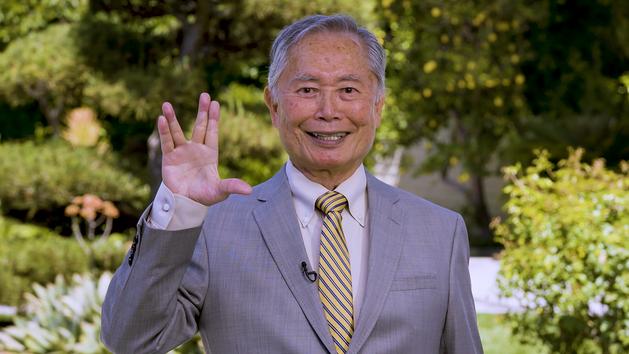George Takei, actor of the cult series Star Trek and activist of LGBTQ rights, the recent anti-racist demonstrations are the proof that the United States "makes progress " but he fears that the pandemic of Covid-19 revives them apparently tenacious that weigh on the community of Asian origin.
Read also: America's tribute to George Floyd, erected as a martyr of racism
George Takei, 83, spoke on Friday at the University of California Los Angeles (UCLA) year-end ceremony. He believes that the thousands of people who marched in the streets after the death of George Floyd are a sign of hope for the new generation. And he encouraged students to be inflexible in defending the rights of minorities, testifying to his own experience in American internment camps of World War II as a child of Japanese origin, then of homophobia who has long reigned in Hollywood.
"We are making progress, but it requires getting involved," the actor told AFP before his speech, judging that American society "was progressing very slowly . "
Second wave of discrimination
The famous “Mister Sulu” of the USS Enterprise has been campaigning for equal rights for decades. And even though he did not take part in recent protests because of his age, he says they reminded him of the civil rights movements in the 1960s and his meeting with Martin Luther King, after participating in a musical about equal rights. "He said to me, 'Thank you very much, especially as an Asian man'" , very rare among activists of the time, he recalls.
George Takei, interpreter of Hikaru Sulu in Star Trek VI, Unknown Land. Paramount Pictures
But George Takei warns of a return of racial discrimination in favor of the pandemic, rekindled by President Donald Trump's statements on the "Chinese virus" . "In the New York subway, an Asian American woman was spit on ... In Texas, a family was stabbed by someone because they had" brought the virus to this country "" , he laments. "My story repeats itself again, because of this pandemic," sighs the actor.
Painful memories
It woke up painful memories of childhood. "I was born in Los Angeles, California ... we are Americans. And yet we were classified as strangers just because we look like the people who bombed Pearl Harbor . ” American soldiers forced the door of the Takei's home in Los Angeles to lock them in “prison camps surrounded by barbed wire” . When they were released at the end of the war, his parents had lost everything and had to live on the street.
George Takei says he regrets having remained "silent" on LGBT rights for so long. It was not until 2005 and the refusal of the governor of California at the time, Arnold Schwarzenegger, to legalize same-sex marriage so that he would reveal his homosexuality. He explains that he feared he would no longer land roles after the Star Trek series ended in 1969.
Read also: UN denounces "structural racism" and "unprecedented aggression" against journalists in the United States
"I hid for most of my adult life ... It was painful. I wanted to speak, ”he says. Ironically, he received numerous role proposals after revealing his homosexuality in 2005.
But for George Takei, racism, police brutality and the recent controversy surrounding JK Rowling's statements about transgender people are a cruel reminder that there is still much room for improvement. "The root of all this discrimination, whether it be race or gender identity, is the same thing," he says. "It's hatred, irrational hatred."

